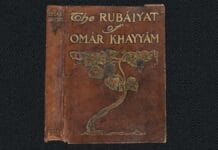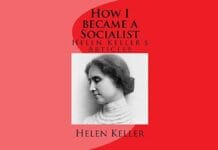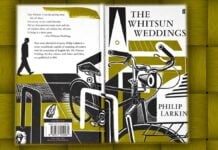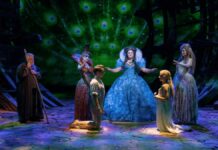Discourse in the Novel by Mikhail Mikhailovich Bakhtin is an essay that forms part of his larger body of work on literary theory, especially his exploration of the novel as a unique literary genre. Written in 1934–1935, this essay articulates Bakhtin’s central ideas about the polyphonic (multivoiced) nature of the novel and its capacity to represent the complexity and heterogeneity of human experience. The essay is part of his broader study of dialogism, emphasising the interplay of multiple voices, perspectives, and discourses within a single work.
The Novel as a Unique Literary Form
Bakhtin begins by asserting that the novel is distinct from other literary forms, such as epic poetry or lyric poetry. Unlike these traditional forms, which are monologic (dominated by a single, unified voice), the novel is inherently dialogic. It incorporates multiple voices, languages, and perspectives, reflecting the diverse and fragmented nature of contemporary life.
Bakhtin’s argument that the novel is distinct from other literary forms highlights its adaptability and relevance. By identifying the novel as a dialogic form, Bakhtin offers a framework for understanding its capacity to reflect and engage with the complexities of modern life.
Heteroglossia (Diversity of Voices)
A central concept in Bakhtin’s essay is heteroglossia, which refers to the coexistence of multiple speech types, social languages, and ideological perspectives within a single text. Different characters, narrators, and even embedded genres (letters, dialogues, parables) bring their own linguistic and ideological frameworks in the novel. This diversity challenges the dominance of any single authoritative perspective.
The idea of heteroglossia is one of Bakhtin’s most enduring contributions. It underscores the richness of the novel as a form that accommodates diverse voices and perspectives, making it a mirror of the social, cultural, and ideological diversity of the real world.
Dialogism
Bakhtin emphasises the dialogic nature of the novel. This means that the voices within a novel interact with and respond to each other, creating a dynamic interplay. Characters do not merely represent fixed ideas or positions; their voices engage in dialogue, questioning, contradicting, and shaping each other. This dialogue extends beyond the text itself, as novels often engage with other literary works, social discourses, and cultural ideologies.
Bakhtin’s notion of dialogism challenges traditional, monologic readings of texts. His emphasis on the interplay of voices and perspectives invites readers to approach literature as an open, dynamic process of meaning-making.
Centripetal and Centrifugal Forces
Bakhtin identifies two forces at work in language: the centripetal force, which seeks to unify and standardise language, and the centrifugal force, which promotes diversity and variation. The novel resists the centripetal force by embracing heteroglossia and giving voice to the centrifugal forces of linguistic and ideological diversity.
Language as Ideological
Bakhtin argues that language is not a neutral medium of communication but is always infused with ideology. Every word carries the imprint of its social, historical, and cultural context. The novel presents diverse speech forms and ideological perspectives and becomes a site of ideological struggle and negotiation.
By framing language as ideological, Bakhtin draws attention to the social and cultural dimensions of literature. His insights have had a significant impact on disciplines such as cultural studies, postcolonial theory, and sociolinguistics, where the relationship between language, power, and identity is a central concern.
Carnivalesque Elements
Bakhtin links the novel to the tradition of the carnival, where social hierarchies are temporarily inverted, and diverse voices and perspectives are given equal footing. In the novel, this carnival spirit manifests in the subversion of authoritative voices and the celebration of the multiplicity of human experience.
The carnivalesque elements in Bakhtin’s theory celebrate the novel’s potential to subvert dominant ideologies and hierarchies. This makes his work particularly resonant in times of social and political upheaval, where literature often serves as a space for resistance and critique.
The Role of the Author
While the author orchestrates the various voices in the novel, Bakhtin stresses that the author does not impose a single, unified perspective. Instead, the author facilitates the interaction of voices, allowing the dialogic process to unfold.
Relevance to Modern and Postmodern Literature
Bakhtin’s theories are especially relevant to modern and postmodern literature, which often foregrounds fragmentation, multiplicity, and the interplay of voices. His ideas provide a theoretical foundation for understanding experimental and polyphonic works by authors like James Joyce, Virginia Woolf, and Salman Rushdie.
Mikhail Bakhtin’s Discourse in the Novel is a landmark essay that redefines the novel as a genre of unparalleled richness and complexity. It has profoundly influenced literary criticism, encouraging scholars to move beyond traditional, hierarchical interpretations of texts. Bakhtin’s emphasis on polyphony and heteroglossia has paved the way for more inclusive and nuanced approaches to literary analysis. His insights into language, ideology, and the interplay of voices have had a transformative impact on literary theory and continue to resonate across disciplines. The essay stands as a testament to the novel’s enduring relevance and its capacity to reflect the pluralistic, dynamic nature of life itself.





























